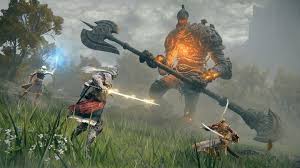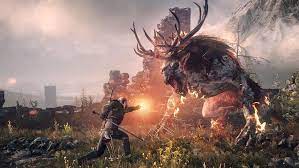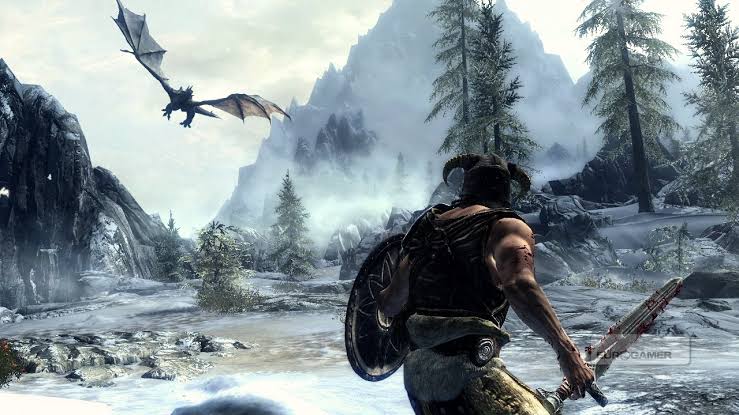RPG Strategy Guide for Online Gaming Success 2025
RPG Strategy RPG StrategyIntroduction to RPG Strategy
Role-Playing Games (RPGs) have always held a special place in the gaming world. They allow players to immerse themselves in fantasy settings, assume heroic roles, and make impactful decisions. However, excelling in RPGs requires more than casual exploration—it demands the use of well-crafted RPGStrategy.

RPG Strategy is the art of combining character builds, combat mechanics, resource allocation, and teamwork to achieve consistent success. It ensures players are prepared for both player-versus-environment (PvE) and player-versus-player (PvP) encounters.
This guide explores RPGStrategy in depth, covering fundamentals, advanced techniques, and psychological approaches. By applying these strategies, you can maximize your potential, contribute more effectively in teams, and dominate online worlds.
Core Fundamentals of RPG Strategy
The most basic element of RPGStrategy lies in understanding the mechanics of the game. Health, mana, stamina, cooldowns, and special abilities all interact to form a system of balance. Mastery begins when players understand these systems deeply.
Combat rhythm also defines success. Knowing when to strike, defend, or retreat can make the difference between winning and losing. A careless approach wastes resources and leads to unnecessary setbacks.
Finally, consistent practice and experimentation are critical. A solid RPGStrategy grows with experience, adapting to new challenges as players become more skilled.
Character Builds in RPG Strategy
Every RPG revolves around character development. Choosing a character build shapes not only how you play but also how your role fits within a team.

Damage dealers maximize offensive output, often requiring precise timing and positioning. Tanks focus on survivability, drawing enemy fire while allies strike. Support characters maintain team stability through healing and buffs.
Experimenting with builds and adjusting according to the situation is a cornerstone of RPGStrategy. Flexibility allows players to adapt to bosses, dungeons, or PvP encounters.
Team Synergy and RPG Strategy
Online RPGs thrive on teamwork, making synergy vital. Even the strongest solo players struggle without proper party balance.
A well-composed team combines offense, defense, and support, ensuring survival against overwhelming odds. Tanks absorb damage, DPS players eliminate threats, and healers sustain everyone.
The Strategy emphasizes communication. Voice chat, pings, or in-game commands help synchronize actions. Teams that coordinate attacks and share resources always outperform disorganized groups.
Resource Management in RPG Strategy
Resources are finite, and efficient management determines long-term success. Gold, potions, crafting materials, and equipment upgrades all need careful handling.

Overspending on unnecessary items may leave you underprepared for major battles. Wise RPGStrategy focuses on prioritization—investing where benefits outweigh costs.
Additionally, farming techniques, trading systems, and crafting economies play important roles. Smart players build reserves to ensure sustainability across extended campaigns.
Progression Systems and RPG Strategy
Progression systems define how characters grow stronger. Leveling up, skill trees, and gear upgrades all contribute to advancement.
A solid RPGStrategy involves planning progression paths ahead of time. Choosing which stats to boost or which skills to unlock prevents wasted potential.
Players who balance progression across combat, defense, and utility skills often enjoy smoother experiences and fewer setbacks.
The Role of Quests in RPG Strategy
Quests drive most RPG narratives and progression. Main quests often provide direction, while side quests enrich experience and rewards.
An effective RPGStrategy involves balancing both. Focusing exclusively on the main story may cause missed opportunities for rare items. On the other hand, neglecting the story delays overall advancement.
Players who mix quests wisely maximize rewards, gain lore, and develop their characters fully.
Exploration as Part of RPG Strategy
Exploration is more than sightseeing—it is a strategic tool. Many RPGs hide treasures, shortcuts, and secrets across vast maps.
A smart RPGStrategy encourages thorough exploration. Uncovering hidden zones may provide rare loot, powerful allies, or alternative quest routes.
Exploration also builds map awareness, helping players navigate efficiently during high-stakes battles or timed objectives.
Combat Mechanics in RPG Strategy
Combat lies at the heart of every RPG. Understanding attack ranges, cooldowns, and combo systems ensures consistent performance.
Players must learn to read enemy behaviors. Many bosses telegraph their attacks, giving opportunities for counters or evasions.
RPGStrategy teaches players to manage stamina, time dodges, and maintain positioning to minimize damage while maximizing output.
Role Specialization in RPG Strategy
Specialization deepens a character’s role. Instead of being average in many areas, players can excel in one.
Healers may focus on rapid recovery, tanks on crowd control, and mages on elemental destruction. This specialization creates strong team synergy.
A key RPG Strategy principle is to understand not only your specialization but also how it complements your allies.
Gear Optimization and RPG Strategy
Gear makes or breaks a character. Even the most skilled player struggles without proper equipment.
Optimizing gear involves understanding attributes like attack power, critical chance, defense, and resistance. Choosing the right gear for your build is central to RPGStrategy.
Players often farm dungeons or craft specific items to perfect their setups, ensuring competitive advantage.
Economy Systems in RPG Strategy
Many RPGs feature in-game economies where items can be traded, bought, or sold.
An advanced RPGStrategy includes learning market trends, identifying valuable resources, and engaging in profitable trade.
Mastering these systems ensures financial stability, making it easier to fund progression, gear upgrades, and consumables.
Skill Rotation in RPG Strategy
Skill rotation refers to the order and timing of abilities. Using skills randomly leads to wasted potential.
An effective RPGStrategy creates a rhythm where damage, buffs, and defenses flow smoothly. Rotations maximize efficiency while preventing downtime.
Practicing skill rotation improves reaction speed, consistency, and overall effectiveness in combat.
Crowd Control in RPG Strategy
Crowd control (CC) determines how well players manage groups of enemies. Stuns, slows, and knockbacks are crucial in both PvE and PvP.
An advanced RPGStrategy ensures CC is applied strategically. Poorly timed CC wastes abilities, while coordinated usage can decide fights.
Mastering CC also helps in defensive situations, allowing players to escape or regroup.
PvE RPG Strategy Fundamentals
Player-versus-environment encounters define the majority of RPG gameplay. Bosses, dungeons, and world events test preparation.
PvE RPGStrategy involves studying enemy mechanics, preparing gear, and assigning roles within the team.
Success comes from patience and coordination, ensuring the group adapts as encounters grow more complex.
PvP RPG Strategy Fundamentals
Player-versus-player combat requires a different mindset. Human opponents are unpredictable and adaptive.
RPGStrategy in PvP emphasizes flexibility, counterplay, and mental resilience. Reading opponents and anticipating their builds becomes crucial.
Victory in PvP often comes from strategy rather than pure mechanics. Outsmarting the enemy ensures consistent performance.
Time Management in RPGStrategy
RPGs demand significant time investment. Players who manage time effectively progress faster than those who play randomly.
Scheduling farming, quests, and team raids creates efficiency. Setting daily or weekly goals ensures steady advancement.
A disciplined RPGStrategy balances gaming with real-life commitments, preventing burnout.
Dungeon Strategy in RPG Games
Dungeons are central to most RPGs like PausSlot, providing rare loot and challenging encounters.
RPGStrategy involves studying dungeon layouts, understanding boss mechanics, and dividing responsibilities among teammates.
Preparation ensures fewer wipes and more successful farming runs, making dungeons efficient rather than frustrating.
Raid Coordination and RPG Strategy
Raids test the limits of team coordination. Large groups must act as one to overcome powerful bosses.
An effective RPGStrategy involves role assignment, clear communication, and backup plans for emergencies.
Success in raids not only provides top-tier rewards but also strengthens team bonds and cooperation.
The Role of Guilds in RPG Strategy
Guilds provide social and strategic benefits. Being part of an active guild often unlocks resources unavailable to solo players.
Guild activities such as raids, events, and trading add depth to RPGStrategy. They also create opportunities for learning and collaboration.
Players who commit to guild life enjoy faster progression and stronger support networks.
Adaptability in RPGStrategy
Rigid strategies fail against unpredictable challenges. Adaptability ensures players adjust tactics to evolving situations.
This may involve switching builds, changing roles mid-combat, or rethinking progression plans.
Adaptable players embody the essence of RPGStrategy, thriving where others struggle.
Endgame Content in RPG Strategy
Endgame content—raids, elite dungeons, and PvP tournaments—demands the highest level of strategy.
Only players with optimized builds, gear, and coordination succeed consistently.
RPGStrategy at this stage becomes less about grinding and more about teamwork, planning, and execution.
Psychological Elements of RPG Strategy
RPGs also involve mental gameplay. Confidence, patience, and composure play roles as important as mechanics.
Intimidating enemies, reading patterns, and controlling tempo are psychological tactics within RPGStrategy.
A strong mental approach helps players stay calm under pressure, improving performance in critical moments.
Continuous Learning in RPG Strategy
RPGs constantly evolve with patches, expansions, and balance changes. What works today may not work tomorrow.
RPGStrategy involves continuous learning, whether through guides, community forums, or personal experimentation.
Players who adapt to updates maintain relevance and success in competitive environments.
Conclusion: The Power of RPG Strategy
RPGs reward creativity, planning, and persistence. Success is never about luck alone but about applying well-thought-out tactics.
RPGStrategy ensures consistency, efficiency, and teamwork, allowing players to achieve goals faster and enjoy the game more deeply.
Whether you play casually or competitively, mastering RPG Strategy will always give you the edge you need in online worlds.
Crafting Systems in RPG Strategy
Crafting is a vital part of many online RPGs, allowing players to create weapons, armor, and consumables. A well-planned RPGStrategy integrates crafting to reduce reliance on external markets.
By gathering materials consistently, players ensure self-sufficiency and reduce costs. Crafting also allows for customized gear tailored to specific builds.
Advanced crafting becomes a competitive advantage, offering items that may outperform standard loot drops. Strategic players often rely heavily on crafting to stay ahead.
Trading and Market Play in RPG Strategy
Markets in RPGs function as real economies. Learning to trade efficiently is an overlooked but powerful part of RPGStrategy.
Smart players buy low and sell high, capitalizing on fluctuations in item demand. Market manipulation and timing are as valuable as combat skills.
Mastering trade ensures steady income, which funds better gear, rare items, and sustainable growth.
Reputation Systems in RPGStrategy
Reputation with factions or NPC groups often unlocks special benefits. Many players underestimate how crucial this is for long-term progression.
An effective RPGStrategy involves completing quests and activities that build positive reputations early. This prevents missing out on late-game rewards.
Balancing reputations across multiple groups can unlock diverse opportunities, enhancing overall versatility.
Skill Tree Planning in RPG Strategy
Skill trees define character growth. Investing blindly often weakens potential, while careful planning maximizes effectiveness.
A strong RPGStrategy involves mapping skill upgrades in advance, prioritizing abilities that enhance your playstyle.
Players who master skill trees create optimized builds that outperform unfocused characters.
Mounts and Travel in RPG Strategy
Travel time impacts progression speed. Efficient RPGStrategy includes securing fast mounts or teleportation options.
Mounts not only reduce travel time but may also assist in combat or exploration. Strategic use of travel tools saves hours over the course of gameplay.
Players who optimize travel remain consistently ahead of others in terms of quest completion and farming.
Environmental Awareness in RPG Strategy
Environments in RPGs often influence combat. Weather, terrain, and hazards must be considered.
Players using RPGStrategy pay attention to surroundings, exploiting advantages like high ground or cover.
Awareness ensures survival in hostile zones and enhances combat efficiency.
Boss Mechanics and RPG Strategy
Boss fights are the ultimate test of preparation. Each boss has unique phases, weaknesses, and attack patterns.
RPGStrategy requires studying these mechanics, developing countermeasures, and coordinating team efforts.
Players who master boss mechanics achieve smoother raids and unlock valuable loot more consistently.
Event Participation in RPG Strategy
Events provide time-limited rewards that can’t be obtained elsewhere.
An advanced RPGStrategy involves tracking event schedules, prioritizing participation, and maximizing rewards.
Events often give exclusive gear or cosmetics, adding both power and prestige to your character.
Farming Routes in RPG Strategy
Farming for resources, gold, or experience is a staple of RPGs. Optimizing routes saves time and maximizes output.
RPGStrategy includes planning the most efficient paths, targeting areas with high drop rates or valuable loot.
Consistent farming ensures steady progression and long-term sustainability.
Social Interaction in RPG Strategy
Building relationships with other players strengthens both gameplay and enjoyment.
Social networking provides access to guilds, alliances, and trade deals. RPGStrategy recognizes the value of friendships in online communities.
Players with strong social ties often progress faster thanks to mutual support.
Achievements and RPG Strategy
Achievements provide goals beyond basic progression.
A clever RPGStrategy incorporates achievement hunting as a way to gain rewards, titles, and recognition.
Achievements also build prestige within the community, showcasing dedication and mastery.
Housing Systems in RPG Strategy
Some RPGs allow players to own or customize houses. While cosmetic, housing often provides strategic benefits such as storage or buffs.
RPGStrategy involves using housing effectively, ensuring it supports crafting, trading, or resting.
Well-developed housing enhances immersion and utility in long-term play.
RNG and Luck Management in RPG Strategy
Random Number Generation (RNG) affects loot drops and outcomes. While luck cannot be controlled, strategy can reduce its impact.
Players use RPGStrategy to maximize chances—running dungeons multiple times, stacking bonuses, or saving resources for guaranteed upgrades.
Minimizing reliance on pure chance ensures steady progress.
Character Customization in RPG Strategy
Customization extends beyond cosmetics. Choosing racial traits, perks, or passive bonuses influences gameplay deeply.
A thoughtful RPG Strategy considers customization as part of build optimization.
Well-tailored characters perform more efficiently, making customization a strategic tool rather than a vanity feature.
Seasonal Content in RPG Strategy
Seasonal updates bring fresh content, mechanics, and challenges.
Players who adapt their RPGStrategy to seasonal changes stay ahead of the curve.
Completing seasonal content often provides exclusive items, boosting long-term competitiveness.
Daily Quests in RPG Strategy
Daily quests ensure steady progression, often rewarding currencies or materials.
Smart RPGStrategy includes completing these consistently to maintain long-term advantages.
Ignoring dailies leaves players at a disadvantage compared to more disciplined competitors.
Endurance and Grinding in RPG Strategy
Grinding can feel repetitive but remains necessary.
RPGStrategy turns grinding into efficiency by focusing on the most rewarding activities.
This ensures effort translates into meaningful progress rather than wasted time.
PvP Arena Tactics in RPG Strategy
Arena battles test both skill and strategy.
An effective RPGStrategy in arenas includes understanding class matchups, exploiting weaknesses, and coordinating with teammates.
Arena success boosts ranking, prestige, and rewards.
Open World Exploration in RPG Strategy
Open worlds hold countless secrets. Players who explore thoroughly often gain rare advantages.
Strategic exploration uncovers hidden bosses, treasure, and lore.
RPGStrategy treats exploration not as optional but as essential.
Lore Knowledge in RPG Strategy
Lore shapes game mechanics, quest design, and hidden systems.
Players who study lore often discover hints for puzzles, boss weaknesses, or secret quests.
Integrating lore into RPGStrategy deepens immersion and provides tactical advantages.
Meta Awareness in RPG Strategy
The “meta” refers to the most effective strategies in the current patch.
RPGStrategy requires staying aware of meta shifts, adapting builds and tactics accordingly.
Meta-aware players remain competitive, while outdated strategies quickly lose effectiveness.
Hybrid Builds in RPG Strategy
Hybrid builds combine aspects of different roles, offering versatility.
While not always as strong as specialized builds, they provide flexibility in diverse situations.
Strategic players use hybrids when adaptability outweighs raw power.
Companion Systems in RPG Strategy
Many RPGs allow players to recruit AI companions.
RPG Strategy involves selecting companions with complementary skills, enhancing solo performance.
Proper companion management transforms solo adventures into balanced team experiences.
In-Game Politics in RPG Strategy
Some online RPGs include player-driven politics, guild wars, or territory control.
RPG Strategy in these scenarios involves alliances, diplomacy, and negotiation.
Strong political strategy often outweighs combat skills in determining dominance.
Cross-Classing in RPG Strategy
Some RPGs allow mixing classes or unlocking secondary roles.
An advanced RPG Strategy considers cross-classing as a way to enhance versatility.
Mixing abilities often creates powerful synergies otherwise unavailable.
Inventory Management in RPG Strategy
Inventory space is limited. Poor organization wastes time and resources.
A disciplined RPG Strategy involves sorting items, selling junk, and prioritizing essentials.
Efficient inventory ensures readiness for battles, quests, and crafting.
Consumables in RPG Strategy
Potions, scrolls, and buffs provide temporary advantages.
RPG Strategy emphasizes using consumables wisely—saving them for key fights rather than wasting them.
Proper timing of consumables often determines success in critical battles.
Role Rotation in RPG Strategy
In long encounters, roles may shift dynamically.
For example, DPS may temporarily tank or supports may need to focus on damage.
An adaptive RPG Strategy accounts for these rotations, ensuring survival under pressure.
Replay Value and RPG Strategy
Many RPGs encourage replaying content with new builds or characters.
RPG Strategy turns replaying into learning opportunities, testing new methods and refining skills.
This process extends game enjoyment while deepening mastery.
Streaming and Sharing RPG Strategy
Sharing strategies through streaming or content creation helps both the community and the player.
By teaching others, players reinforce their own knowledge.
Streaming also provides opportunities to test strategies under pressure and gain feedback.

